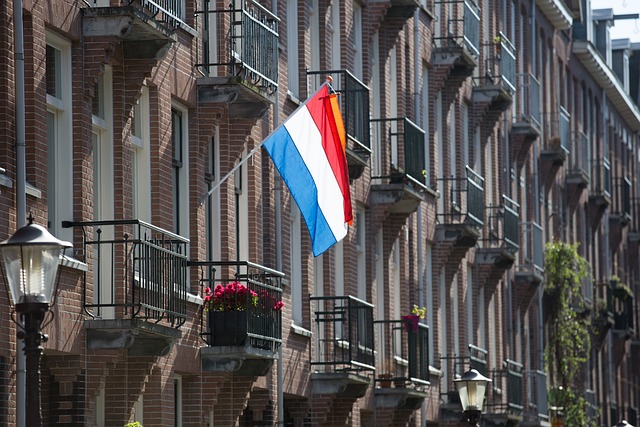Dutch Banking: Opening an Account as a Foreigner – A Comprehensive Guide

The Netherlands, with its robust economy, international business environment, and high quality of life, is a popular destination for expatriates, students, and professionals. One of the first tasks for newcomers is opening a bank account, which is essential for managing finances, receiving salaries, and paying bills. While the process is straightforward for Dutch residents, foreigners may encounter some challenges due to documentation requirements and banking regulations. In this article, we’ll guide you through the process of opening a bank account in the Netherlands as a foreigner, including the requirements, types of accounts, and tips for choosing the right bank.
Why Open a Bank Account in the Netherlands?
Opening a Dutch bank account offers several advantages:
- Convenience: A local account makes it easier to receive salaries, pay rent, and manage daily expenses.
- Access to Online Banking: Dutch banks offer user-friendly online and mobile banking platforms.
- Integration: Having a local account helps you integrate into Dutch society and navigate financial systems like taxes and insurance.
- Lower Fees: Using a Dutch account for local transactions avoids international transfer fees and currency conversion charges.
Types of Bank Accounts in the Netherlands
- Current Account (Betaalrekening)
- A standard account for everyday transactions, such as receiving salaries, paying bills, and making purchases. It usually comes with a debit card and online banking access.
- Savings Account (Spaarrekening)
- Designed for saving money, these accounts offer interest on deposits. They are often linked to a current account for easy transfers.
- Student Account
- Many banks offer special accounts for students, with lower fees and additional benefits like discounts on cultural events.
- Business Account (Zakelijke Rekening)
- For entrepreneurs and business owners, a business account is necessary for managing company finances.
Requirements for Opening a Bank Account as a Foreigner
The exact requirements may vary depending on the bank, but most banks in the Netherlands will ask for the following documents:
- Valid Passport or ID
- A passport or EU/EEA national ID card is required for identity verification.
- Proof of Address
- A recent utility bill, rental agreement, or official letter from your municipality (gemeente) confirming your address.
- BSN Number (Burger Service Nummer)
- The BSN is a unique identification number issued to residents in the Netherlands. It is mandatory for opening a bank account.
- Residence Permit (if applicable)
- Non-EU/EEA citizens may need to provide a valid residence permit.
- Proof of Income or Employment
- Some banks may ask for proof of income, such as an employment contract or pay slips.
- Student ID (for student accounts)
- If you’re opening a student account, you’ll need to provide proof of enrollment at a Dutch educational institution.
Steps to Open a Bank Account
- Choose a Bank
- Research Dutch banks to find one that suits your needs. Major banks include ING, ABN AMRO, Rabobank, and Bunq (an online bank popular among expats).
- Gather Required Documents
- Ensure you have all the necessary documents, including your passport, BSN number, and proof of address.
- Visit a Branch or Apply Online
- Some banks allow you to open an account online, while others may require an in-person visit to a branch. Online banks like Bunq and N26 are fully digital and cater to expats.
- Complete the Application
- Fill out the application form and submit your documents. The bank will verify your information and process your application.
- Receive Your Bank Card and Details
- Once your account is approved, you’ll receive your debit card, PIN, and online banking details by mail. This usually takes a few business days.
Top Banks in the Netherlands for Foreigners
- ING
- One of the largest banks in the Netherlands, offering a wide range of services and English-language support.
- ABN AMRO
- Known for its expat-friendly services, ABN AMRO provides English-speaking staff and online banking in English.
- Rabobank
- A cooperative bank with a strong presence in rural areas. It offers personalized service but may require an in-person visit to open an account.
- Bunq
- A fully digital bank popular among expats and digital nomads. It offers easy account setup, multi-currency accounts, and English-language support.
- N26
- An online bank based in Germany but widely used in the Netherlands. It’s ideal for those who prefer a fully digital banking experience.
Tips for Choosing the Right Bank
- Language Support
- If you’re not fluent in Dutch, choose a bank that offers English-language services and support.
- Fees and Charges
- Compare monthly fees, transaction costs, and ATM withdrawal fees to find a bank that fits your budget.
- Online and Mobile Banking
- Check if the bank offers a user-friendly online and mobile banking platform, as this will be your primary way of managing your account.
- Accessibility
- Consider the bank’s branch and ATM network, especially if you prefer in-person banking.
- Expat-Friendly Services
- Some banks offer special services for expats, such as assistance with setting up utilities or finding housing.
Challenges for Foreigners
- BSN Requirement
- Obtaining a BSN number can take time, especially if you’re waiting for your residence permit or registration with the municipality.
- Proof of Address
- If you’re staying in temporary accommodation, providing proof of address can be challenging. Some banks may accept a letter from your employer or educational institution.
- Language Barriers
- While major banks offer English services, smaller banks or local branches may have limited English support.




